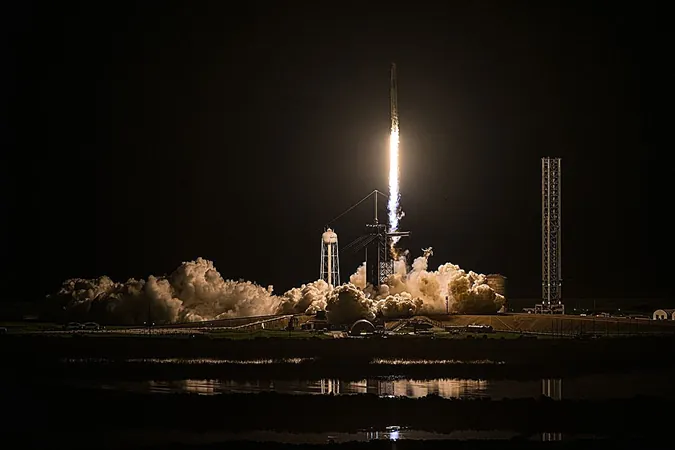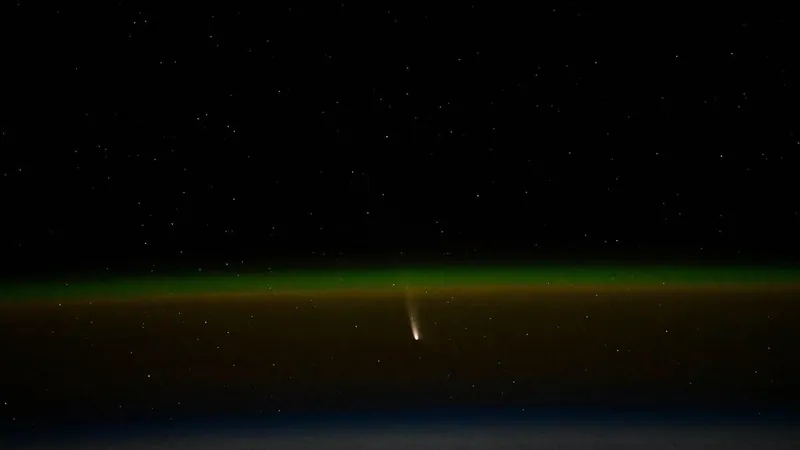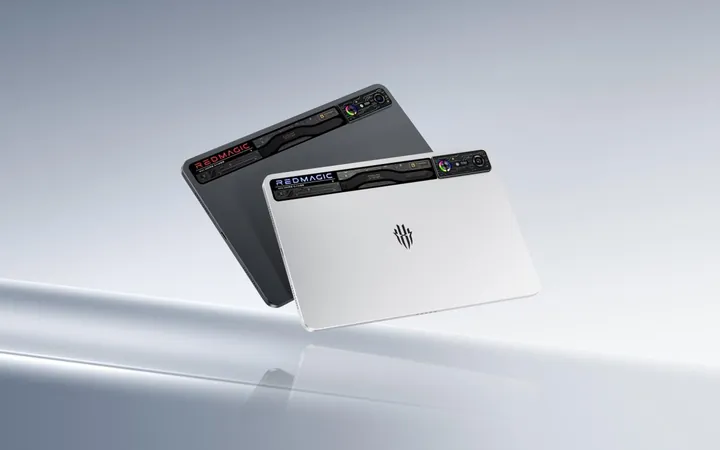
Polaris Dawn: A Leap Forward in Space Medicine and Research!
2024-09-16
Introduction
The much-anticipated Polaris Dawn mission has officially launched from the Kennedy Space Center, marking a groundbreaking moment in civilian space exploration with its first-ever commercial spacewalk. This mission is not just a marvel of technology; it promises to open new frontiers in space medicine research, spurring excitement among many experts, including Emmanuel Urquieta, a prominent space medicine authority recently appointed at the University of Central Florida's College of Medicine.
Unprecedented Altitude and Its Implications
What makes this journey remarkable is its unprecedented altitude, flying as high as 870 miles above Earth—an elevation not reached in the last 50 years. At such heights, the crew will encounter heightened radiation exposure compared to astronauts who typically remain in low Earth orbit, such as those aboard the ISS. This is a game-changer when it comes to understanding the effects of radiation on the human body during extended space travel.
Unique Spacewalk Conditions
As the mission's astronauts prepare for their historic spacewalk, they will perform it under unique conditions: the entire spacecraft will be depressurized instead of utilizing a traditional airlock. This means that all four astronauts will face the vacuum of space directly, necessitating reliance on their specialized SpaceX-designed suits for their life support. This operational shift not only amplifies the risks associated with decompression sickness—often referred to as "the bends"—which can occur when nitrogen bubbles form in the bloodstream due to rapid pressure changes, but it also highlights the need for robust preparation and monitoring.
Monitoring and Data Collection
To mitigate these risks, the Polaris Dawn team is equipped with an advanced ultrasound device to constantly monitor the astronauts for any signs of bubble formation, gathering crucial medical data that will deepen our understanding of how the human body adapts to the challenges of spaceflight. Urquieta notes, "This data will be invaluable for enhancing safety protocols not only for astronauts but also for scuba divers—particularly those in areas like Florida where diving is popular."
Biological Samples and Molecular Implications
Additionally, the astronauts will be providing biological samples during their mission, which will be analyzed by the team at UCF to investigate the molecular implications of human exposure to space environments. This will further enrich our knowledge of the physiological changes experienced in space.
Radiation Exposure
Radiation exposure remains a pressing concern for space medicine specialists. Crew members will be subject to increased doses of galactic cosmic radiation (GCR) at this mission's higher altitude. The findings gathered from Polaris Dawn will yield vital insights into the risks associated with radiation and its long-term effects on astronauts' health.
Innovations in Communication
Moreover, Polaris Dawn's crew is pioneering the use of Starlink's laser-based communication technology during their flight. This innovation is poised to revolutionize medical care in space by enhancing real-time communication between the crew and medical professionals on Earth. Should an emergency arise, immediate access to medical information could prove lifesaving. Furthermore, the implications extend far beyond this mission, potentially facilitating internet connectivity and communication for future lunar expeditions and deeper space missions.
Conclusion
"This system could dramatically change how we communicate medical information, enabling near real-time exchanges that will benefit efforts both in space and here on Earth," Urquieta asserts. As Polaris Dawn embarks on its historic mission, it stands as a beacon of hope for the future of space exploration, paving the way for invaluable advancements in understanding human health and safety in space. Stay tuned, as the world watches to see how these brave astronauts push the boundaries of human capability!





 Brasil (PT)
Brasil (PT)
 Canada (EN)
Canada (EN)
 Chile (ES)
Chile (ES)
 España (ES)
España (ES)
 France (FR)
France (FR)
 Hong Kong (EN)
Hong Kong (EN)
 Italia (IT)
Italia (IT)
 日本 (JA)
日本 (JA)
 Magyarország (HU)
Magyarország (HU)
 Norge (NO)
Norge (NO)
 Polska (PL)
Polska (PL)
 Schweiz (DE)
Schweiz (DE)
 Singapore (EN)
Singapore (EN)
 Sverige (SV)
Sverige (SV)
 Suomi (FI)
Suomi (FI)
 Türkiye (TR)
Türkiye (TR)